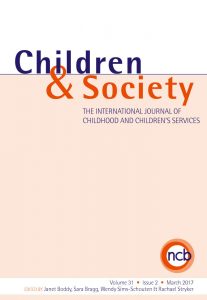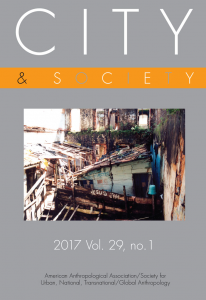School Closures During COVID-19: Potential Impacts on Homeschooling Regulation
by Jenny Enos, Doctoral Student, Rutgers University · Published · Updated

Life as we know it is rapidly changing in the current coronavirus pandemic. While many Americans are experiencing unprecedented financial hardship as unemployment rates are skyrocketing, others with relatively unaffected jobs are nonetheless worried about other aspects of this “new normal”: no handshakes, no large gatherings, and even moving freely about or visiting with loved ones is restricted. Many, of course, are also falling ill or losing family members and friends. Although some states are more affected than others, the reverberations of tragedy and fear are palpable across the country.
Perhaps the most wide-reaching change brought about by the coronavirus pandemic is the nation-wide school closures, which are forcing millions of American parents to homeschool their children while teachers attempt to engage them in online learning. Even in those schools where classes are being brought online, teachers are facing immense barriers to students’ active participation and the general effectiveness of e-learning (or lack thereof)[1]. As such, much responsibility falls on the parents to ensure the continued education of their children. Many parents are struggling to juggle working from home, running a household, and possibly taking care of sick family members, all while also teaching their children math, English, science, and history[2]. As with every other aspect of society, these school closures are (re)producing structural inequalities along racial and socioeconomic lines. Low-income parents and parents of color are more likely to be “essential workers” who cannot stay home with their children; furthermore, they may not have the equipment or internet access necessary for their children to participate in schools’ e-learning programs. Not to mention single parent-households.
In spite of these issues, some proponents of homeschooling seem hopeful that this “months-long virtual pedagogy experiment”[3] will result in greater appreciation for the benefits of home-based education in the U.S.[4] For the past several decades the practice of homeschooling has grown across the country, with varying prevalence in different states, and has gained interest among sociologists studying education. Billingham and Hunt note that parents’ choice to homeschool their children, often due to dissatisfaction with the public-school system, is a contributing factor to school segregation.[5] Many homeschoolers are also driven by their religious beliefs and desire to educate their children away from the “secular humanism” of the public school system.[6]
Beyond personal preferences, homeschooling has also been the subject of dynamic legislative and judicial battles since the 1970s. In their new article “The Rise of Homeschooling Regulation in the Era of School Choice: Legislative and Judicial Trends, 1972-2009” published online 28 January 2020 in Sociological Forum, Renzulli et al [7]. carefully investigate how court decisions and legislation around homeschooling have historically interacted with the educational landscape, political dynamics, and social movement mobilization in U.S. states. Pointing to a lack of literature on the policy dimensions of homeschooling and how courts and the law interact within the realm of education, Renzulli et al. employ event history analyses to explain time-variations in homeschooling regulation between states. Interestingly, they find that court decisions, diffusion from neighboring states, and the mobilization of social movement organizations (such as the Home School Legal Defense Association and the National Education Association teachers’ union) all affect the timing of homeschooling legislation. Surprisingly, although the quality and safety of public schools is frequently cited as a factor influencing the choice to homeschool, the authors find that these issues have little effect on homeschooling regulation.
In the current crisis faced by our country, this research raises several important questions about how homeschooling legislation may (or may not) be affected by the nation-wide school closures. As the authors note, the HSLDA (Home School Legal Defense Association) and NEA (National Education Association) are significant actors in the realm of homeschooling regulation – and they are using the coronavirus pandemic to mobilize members. An article on the HSLDA website, a pro-homeschooling organization, laments the bureaucratic delay many families are facing when trying to transition to full-time homeschooling during the crisis – “the one choice that may do families the most good.”[8] Children wouldn’t be as negatively impacted by this crisis, they argue, if they had been homeschooled all along. Meanwhile, the NEA teachers’ union is leveraging parents’ struggle with homeschooling during the pandemic to highlight how essential teachers are: they are advocating for higher pay, increased safety, and funds for student support. One article on the NEA website entitled “Parents-Turned-Homeschoolers Agree: Teachers are Amazing!” is a collection of parents’ social media expressions of gratitude for teachers.[9]
The stakes are clearly high – not just for children whose development might be hampered by this “months-long virtual pedagogy experiment,”[10] but also for actors looking to use this crisis to their advantage in shaping education policy. How may the coronavirus pandemic ultimately shape legislation around homeschooling and public education? Will the vast majority of parents come out of this crisis more grateful for teachers and willing to pay higher taxes to support them, or will more parents start shying away from public schooling in fears that a similar event might happen again, putting their children’s education in harm’s way? Either way, one thing is clear: while both sides might be hoping that the outcome will favor their cause, the children are those who have the most to lose.
References
[1] https://www.washingtonpost.com/outlook/coronavirus-homeschooling-will-hurt-students-badly/2020/03/27/f639882a-6f62-11ea-b148-e4ce3fbd85b5_story.html
[2] https://www.npr.org/2020/03/27/822698386/no-more-school-no-more-books-coronavirus-and-homeschooling
[3] https://www.washingtonpost.com/outlook/coronavirus-homeschooling-will-hurt-students-badly/2020/03/27/f639882a-6f62-11ea-b148-e4ce3fbd85b5_story.html
[4] https://www.wsj.com/articles/coronavirus-makes-homeschoolers-of-us-all-11585503297
[5] Billingham, Chase M. and Matthew O. Hunt. 2016. “School Racial Composition and Parental Choice: New Evidence on the Preferences of White Parents in the United States.” Sociology of Education 89(2): 99-117.
[6] Apple, Michael W. 2000. “Away With All Teachers: The Cultural Politics of Home Schooling.”International Studies in Sociology of Education 10(1): 61-80.
Renzulli, L.A., Werum, R.E. and Kronberg, A.‐K. (2020), The Rise of Homeschooling Regulation in the Era of School Choice: Legislative and Judicial Trends, 1972–2009. Sociol Forum. doi:10.1111/socf.12582
[8] https://hslda.org/content/hs/state/fl/20200407-COVID-19-Leaves-Kids-in-Education-Limbo.aspx
[9] http://neatoday.org/2020/03/19/homeschooling-during-coronavirus-outbreak/
[10] https://www.washingtonpost.com/outlook/coronavirus-homeschooling-will-hurt-students-badly/2020/03/27/f639882a-6f62-11ea-b148-e4ce3fbd85b5_story.html




1530-2415/asset/SPSSI_logo_small.jpg?v=1&s=703d32c0889a30426e5264b94ce9ad387c90c2e0)
